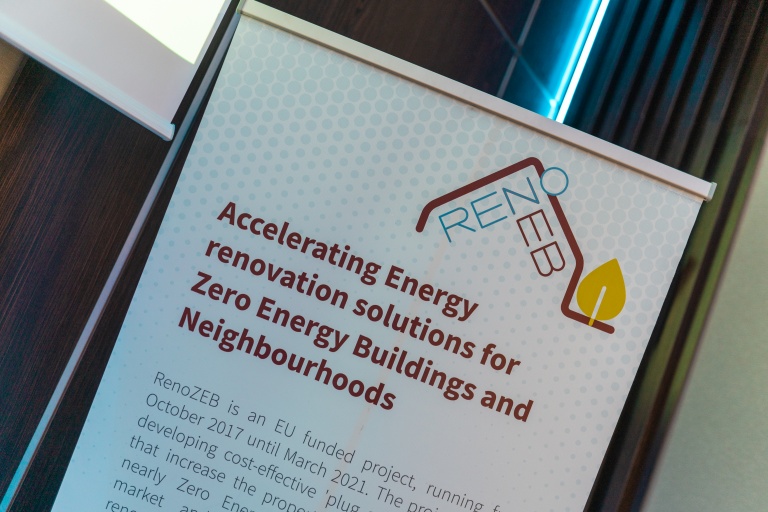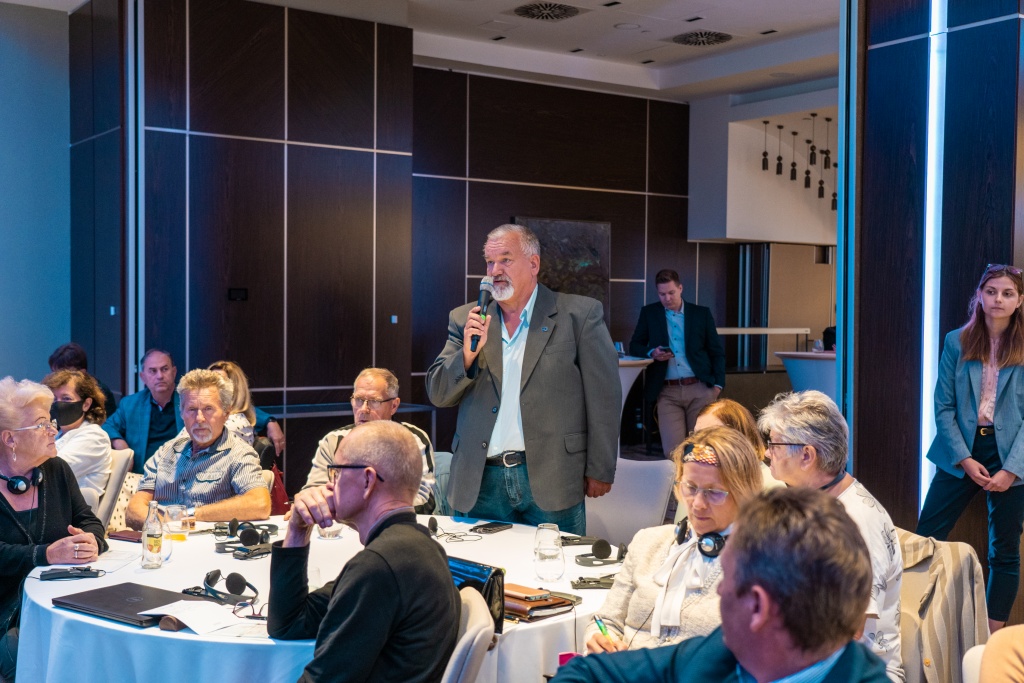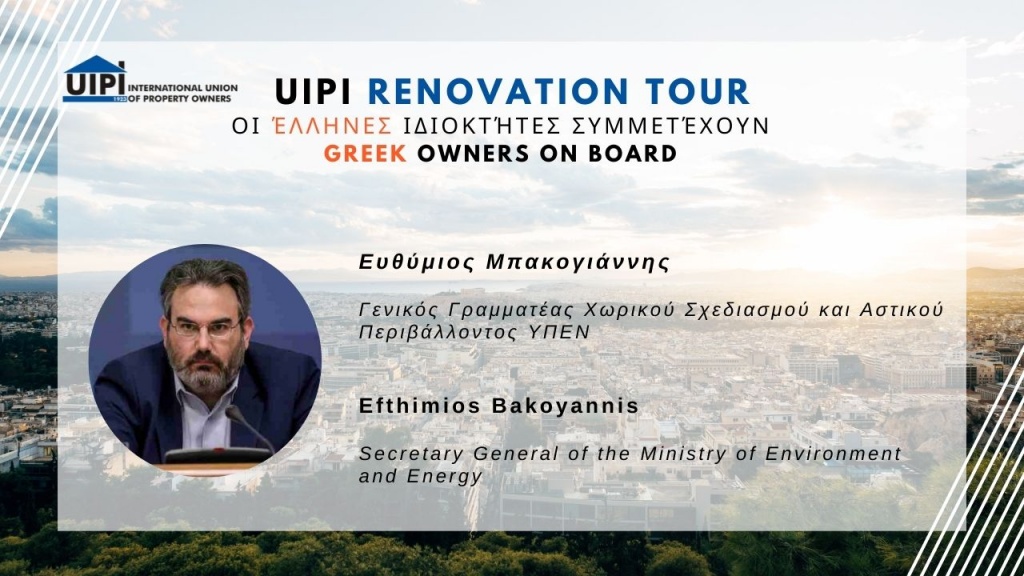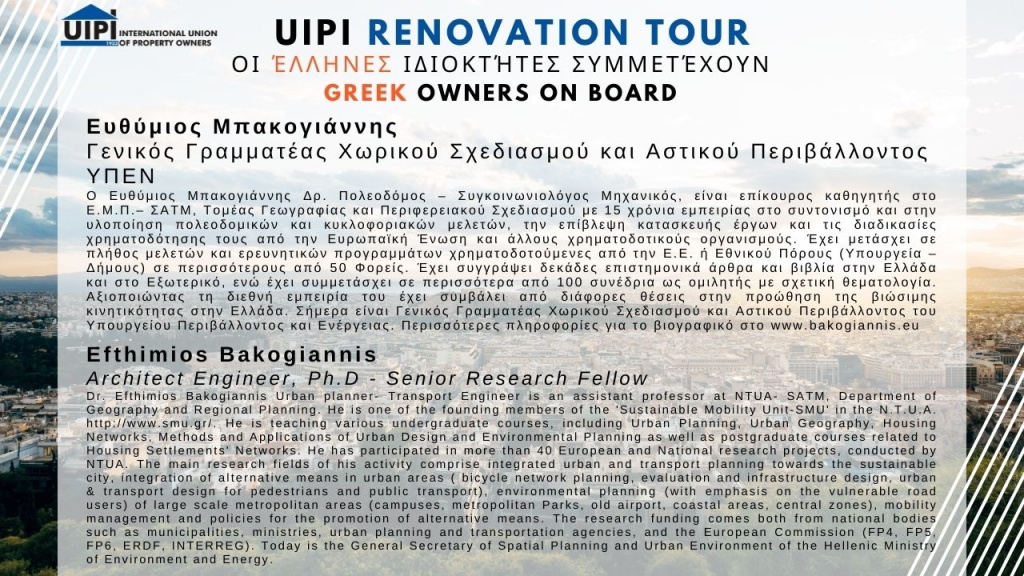Making the “Fit for 55” fit for property owners: feedback from the ground - UIPI Renovation Tour
The countdown to renovate buildings in Europe is accelerating. The European Commission has set the climate targets to reach a carbon neutral continent by 2050 through the European Green Deal and the Renovation Wave Strategy, which further materialised this summer with a first package of legislative proposals: Fit for 55. But, how will these goals translate into reality in the wide and heterogeneous European housing stock? Has the bar been set too high? Will there be enough time? What does it mean for property owners?
These are the questions that the International Union of Property Owners (UIPI) seeks to answer through its Renovation Tour series of events throughout Europe. The tour officially kicked off successfully this September in Budapest (Hungary) and Liège (Belgium) and continued in Vitoria and Bilbao (Spain) in October, clearly demonstrating that property owners are on board to help achieve these goals. At the same time, doubts about the processes were expressed as well as calls for more support as the bottom-up approach is essential if measures implemented are to be realistic and effective. The goal of the Tour is to establish a platform for exchange, which confirmed that it is essential to hear the experiences of the concerned citizens to better adapt and improve current and future policies.
The Hungarian Owners On Board, the Walloon Owners On Board and the Basque Owners On Board events gathered relevant stakeholders from all the most concerned sectors at EU, national and local levels to stir the discussion. This helped to raise awareness and bring the mentioned policies closer to citizens, but also gave a chance to ask questions and provide feedback. For UIPI, it was the opportunity to hear what property owners, condominium managers, policy makers, banking institutions, architects and other representatives from the construction sector have to say about the topic.
One thing is certain: Climate change must be faced together and all the affected actors should be implicated in the process, especially property owners, who, in the end, are the ones carrying out the changes in their dwellings and taking on a great share of the efforts required. As we could hear in Budapest, Liège and Vitoria and Bilbao, there is no doubt that renovating the existing building stock is a big challenge, both for countries where the level of investment is already high and duplicating it seems difficult, and even more for those where the renovation rate would need to be multiplied by 4 or 5 for the targets to be met while the lack of income does not allow for huge investments.


Barriers, incentives and solutions
The lack of information and motivation among property owners is often the first barrier that needs to be addressed, but not necessarily the most difficult one to overcome. It was repeated many times by property owners and condominium managers in the audience that support schemes and incentives such as subsidies and grants, regulatory stability, bonuses, investment plans and interest-free loans are urgently needed if deep renovations are to be started more massively. Flexibility between different national and local contexts, together with a progressive approach, is another fundamental principle and should guide future EU climate policies, as it would be difficult to develop a one-size-fit-all strategy at EU level, and even at national level.
Real estate agents, condominium managers and owners’ representatives are key intermediary figures. Furthermore, well-trained professionals and more workforce who can increase the quality of the work and the role of the construction sector are also essential actors to implement the renovation strategy. Participants were also particularly concerned about the specific and complex situation of multi-apartment buildings, which are not always eligible to access subsidies or bank loans. This should be considered during the decision-making process before implementing renovation policies.


There are several technical, financial and assistance practical solutions that already exist to help citizens throughout the deep renovation journey, although these are many times not sufficiently well-known nor accessible. Both events got these closer to the final user during dedicated workshops that showed cutting edge developed solutions, especially adapted to their needs. It was the perfect occasion for UIPI to present the results of two EU-funded projects that are about to come to an end: RenoZEB modular solutions and TripleA-reno online platform. This way, participants could see real examples of what they can do to renovate their dwellings and also with the help of which assistance, financing and technical tools, and clear any doubts about them by asking questions during the dedicated sessions.
The general feedback received during and after the event was very positive, participants claimed that it was very useful and that they really enjoyed participating. This experience was also enriching for UIPI and it demonstrated the importance of awareness raising and of bringing policy closer to citizens, two things without which the Renovation Wave will hardly be successful and without which the countdown will not be met on time.
The UIPI Renovation Tour continues! The next stop of the UIPI Renovation Tour is the city of Athens, in Greece, where we will organise the event Greek Owners On Board on 11 March. Registration will open shortly. Make your voice heard during this event and contribute to shaping EU policy that is Fit for property owners!


